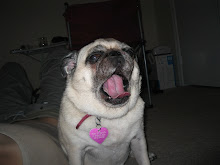We tried something different today: learning stations. I had several different stations around the room. Students would stay in each station for about 25 minutes, and then move onto the next station. Each station had a specific goal.
Today, the main focus of our class was the examination of three different types of poetry: lyric, narrative, and dramatic. Here's what the students did in each learning station:
LEARNING STATION #1
Today, we’re focusing on poetry divided by subject/topic. There are three different types we’re looking at today: narrative, lyric, and dramatic poems.
In this station, you will focus on narrative poems. Use your textbook and follow the steps below:
1. What is a narrative poem? Use your textbook and write down a definition of narrative poem.
2. There are three examples of narrative poems in your textbook. Choose one of them and answer the “For Study and Discussion” questions.
“Lord Randal”, by an unknown author p385
“All in green went my love riding”, by e.e. cummings p.386
“The Castle”, by Edwin Muir p. 389
3. How is this poem a good example of narrative poetry? What is the story of this poem? Write a sentence or two explaining.
LEARNING STATION #2
Today, we’re focusing on poetry divided by subject/topic. There are three different types we’re looking at today: narrative, lyric, and dramatic poems.
In this station, you will focus on lyric poems. Use your textbook and follow the steps below:
1. What is a lyric poem? What was a lyric poem originally (in Greek times)?
2. There are six examples of lyric poems in your book. Choose two of them and answer the “For Study and Discussion” questions.
“John Anderson My Jo”, by Robert Burns p.374
“O Mistress Mine”, by William Shakespeare p.376
“I Wandered Lonely as a Cloud”, by William Wordsworth p.377
“Loveliest of Trees”, by A.E. Housman p. 379
“Desert Places”, by Robert Frost p. 380
“Recessional”, by Rudyard Kipling p.381
3. How are your two poems good examples of lyric poetry? What emotions do the poems express? Write a sentence or two explaining.
LEARNING STATION #3
Today, we’re focusing on poetry divided by subject/topic. There are three different types we’re looking at today: narrative, lyric, and dramatic poems.
In this station, you will focus on dramatic poems. Use your textbook and follow the steps below:
1. What is a dramatic poem? Use your book and write down the definition.
2. There are three examples of dramatic poems in the book. Choose one and answer the “For Study and Discussion” questions.
“The Seven Ages of Man”, by William Shakespeare p.391
“Uphill”, by Christina Rossetti p.394
“The Erl-King”, by Johann Wolfgang Von Goethe p.395
3. How was your poem a good example of dramatic poetry? Who was speaking in the poem? Write a sentence or two explaining.
4. Read the dramatic poem aloud with a fellow student. Each student should pick a part from the poem, and read with emphasis and emotion. Act as if you’re really having a conversation with the other person.
Subscribe to:
Post Comments (Atom)

No comments:
Post a Comment